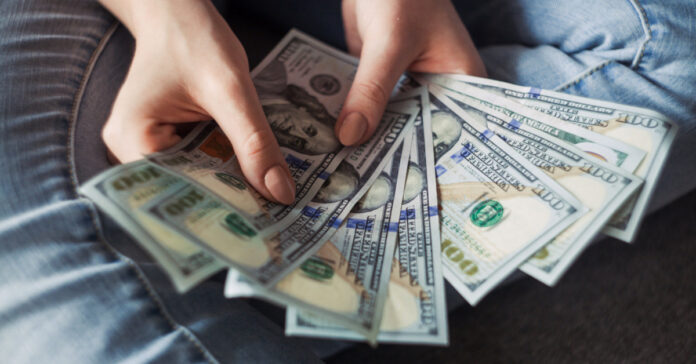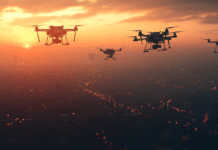Most of us think that the money we have in the bank is safe. Not only do they have bars and alarms, they have that FDIC insurance. Maybe it is safe, but maybe not.
When you deposit money into your bank account, it is considered an unsecured loan you have made to the bank. If your bank gets into financial trouble, they might not give you your money if you try to withdraw it, and there is very little you can do about it. They can also limit the amount of cash you can withdraw at one time. If the bank were to declare bankruptcy, the process would take years and you would be lucky to get pennies on the dollar.
The Bail In
In 2013, when the Cypress was in financial trouble, anyone with more than 100,000 euros in their account had a portion of their funds confiscated and used to help pay off the bank’s debt. This opened the door to the concept of bail ins, setting a precedent. If your bank takes loses money because of some derivative bet or other investing mistake, the bank could use your money to pay off their debts.
In the United States, the Dodd-Frank act makes a bank’s shareholders, debt holders, and depositors responsible for the banks losses beyond the FDIC minimum of $250,000.
Government Action
The government can also prevent you from accessing the money in your bank account. For example, they could freeze your funds or feed your funds. This frequently happens when you owe back taxes or are suspected of committing a crime.
Courts can also order your funds seized as the result of a lawsuit, a bankruptcy, or to compensate the victims of a crime you have been convicted of committing. You could even argue that fines and taxes are confiscation.
During the Canadian trucker protest earlier this year, the Canadian government ordered accounts associated with the protesters frozen. In the U.S., I expect that would be illegal if no one had been convicted of a crime, but with the frequent use of executive orders, you never know.
Most recently, the sanctions against Russian institutions, individuals and even their banks have resulted in money being locked up and the seizure of property, like yachts. If this can happen today to protesters and foreigners, what is to stop it from happening to you or me?
How to Protect Yourself
To protect yourself from bank failures, don’t put all your eggs in one basket split your funds between multiple banks, or better yet a bank and a credit union. Monitor the financial news about your bank. If they take a huge loss, consider transferring the funds to a bank that is in better financial condition.
To protect your funds from a lawsuit or similar seizures, put them into protected asset classes. For example, O.J. Simpson still gets his NFL pension, even though he lost the civil suit and owes Ron Goldman’s family around $70 million. Depending on where you live, creditors may not be able to touch your retirement accounts or life insurance. You can also hold assets in trusts.
In a financial collapse, your money will not be safe in any bank or financial institution. In an end-of-the-world disaster that wipes out the power grids and all electronic systems for a period of years, you may never see your money again. Of course, after a collapse, you won’t be paying taxes or have to make your mortgage payment either. In that kind of scenario, having gold or silver on hand in a place where you can physically protect them (or hide them) is probably the only way to preserve some of your savings.
If you invest in a gold or silver ETF or having a third party hold your gold for you in their vaults, it will disappear just as fast and the money in your bank account in any kind of SHTF event. If you opt for precious metals as part of your prepper stockpile, you should have them in your possession.
The only way to protect yourself from taxes is to not make any money, or at least to nor report an income.
Digital Currency
While a distributed global network of computers supports Bitcoin and other prominent cryptocurrencies, a massive global disaster could conceivably knock out all those machines. In any case, it won’t do you any good to have cryptocurrencies if you cannot access the Internet to transfer the funds.
Let me warn you against cryptocurrencies issued by sovereign governments. These funds are not protected by an independent network but are controlled by the government. That will allow them to take many actions that restrict your use of the funds, including:
- Tracking every transfer or purchase you make. They won’t need access to your bank account because each digital dollar will have a unique number and the government will know who they issued it to and will be able to track its every move.
- Put an expiration date on your funds. If the government issued you $1,200 in stimulus funds, they could require you to spend it in 90 days or it will expire. This would discourage savings.
- Limit where you can spend your money. Just as the funds on an EBT card can only buy certain food products, the government could prevent you from using digital dollars to buy guns, ammo, marijuana, cigarettes, alcohol, banned books, or anything else they don’t approve. During a gasoline shortage, they could limit you to buying only $100 worth of gasoline a week or prevent you from buying gas on weekends. During a food shortage, they could use digital dollars to prevent you from buying more food than they think you need.
Keep in mind that the government wants to control you. Controlling your spending in the manner described above would give them a great deal of power over you and reduce your freedoms.
Dropping Out of the System
You can drop out of the banking system by relying primarily on cash. This might be hard to do in a tech hub city like Seattle or Austin, but it’s easy to do in rural areas or in lower socio-economic neighborhoods where there are a higher number of people who are “unbanked.” For those times when you must use credit, buy a cash card from Visa or MasterCard. Don’t keep refilling the same card. Buy a new one every few months to prevent tracking.
Here are a few of articles on dropping out of the banking system:







